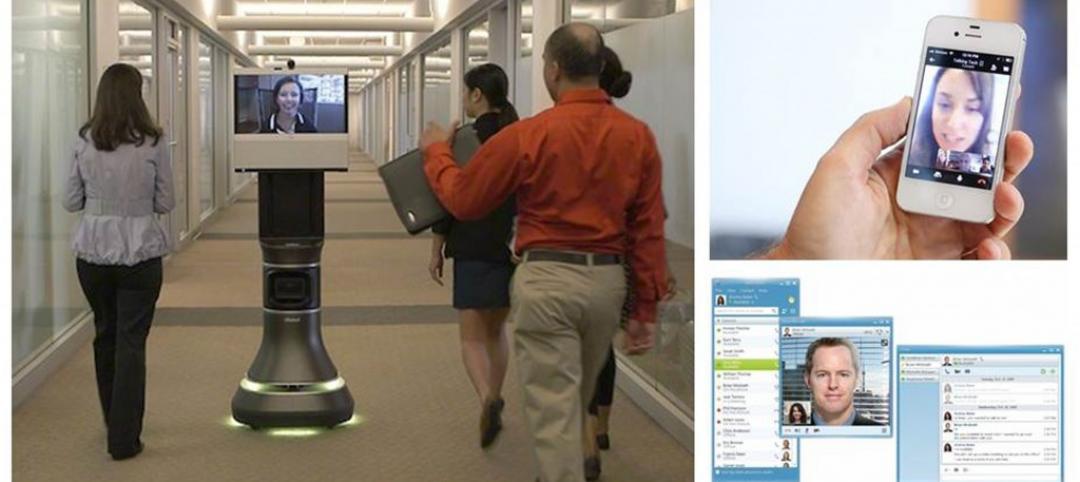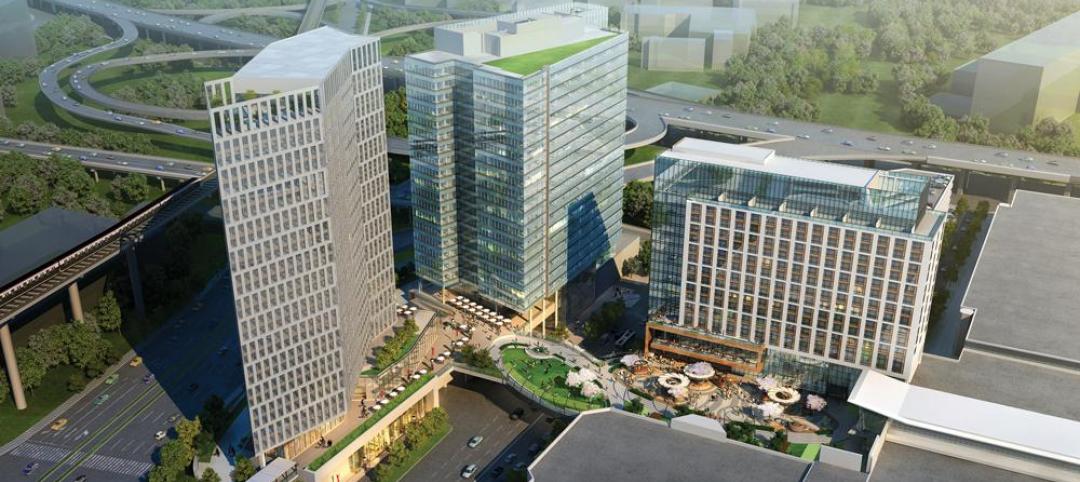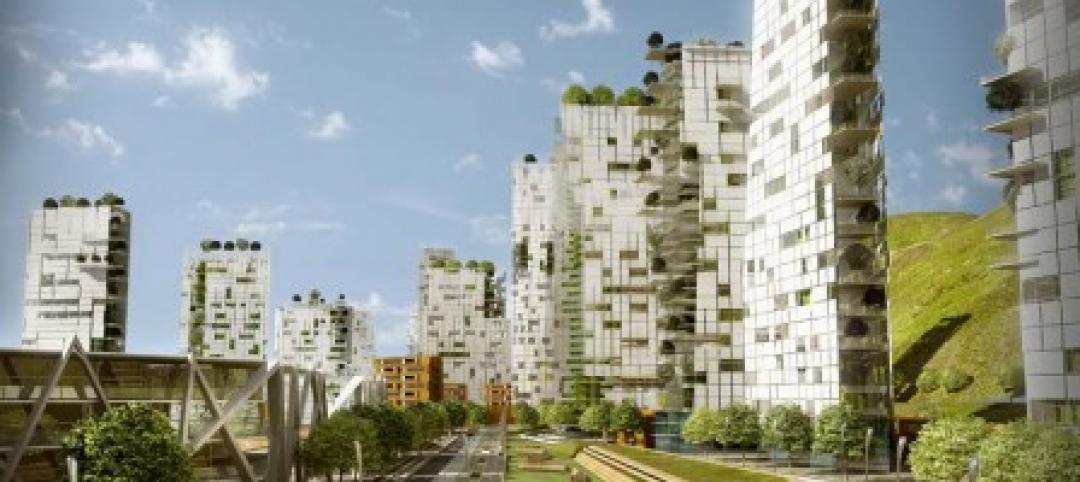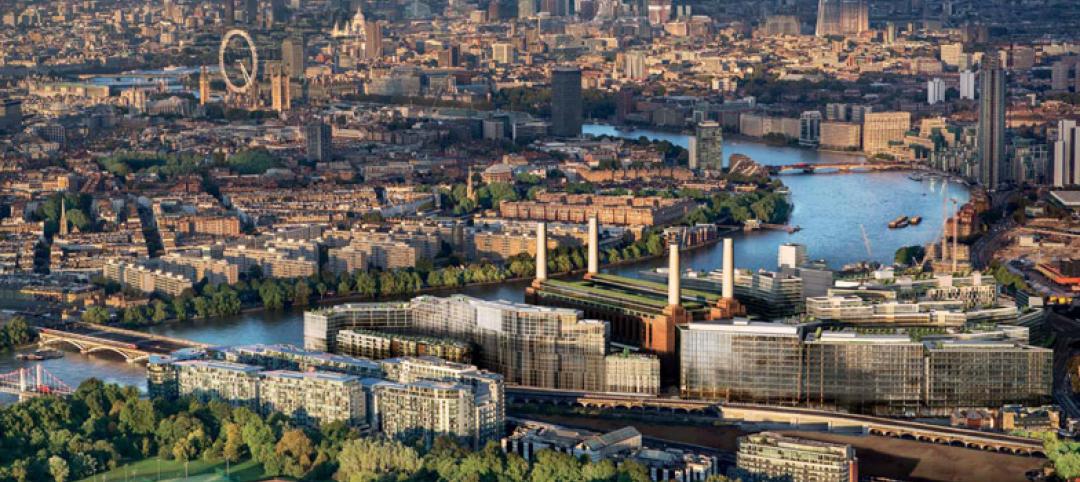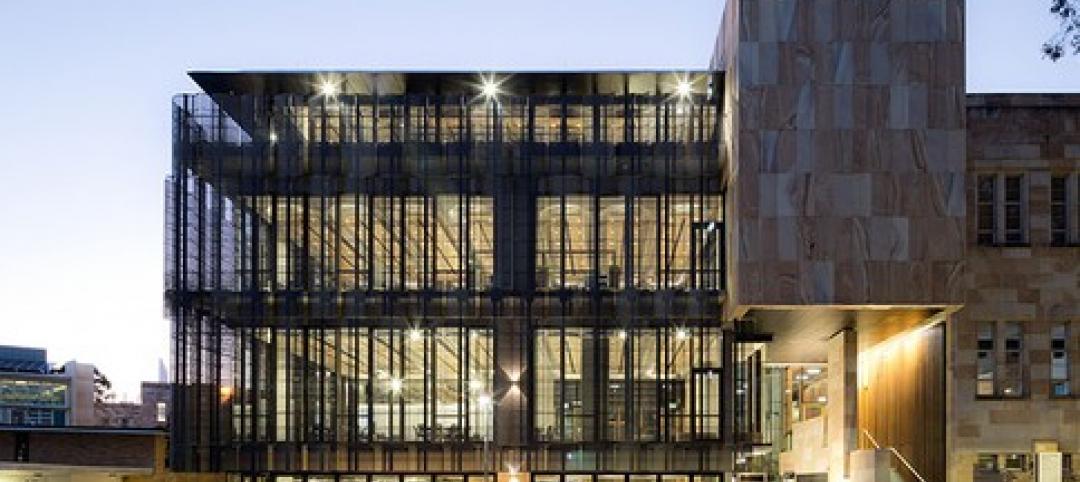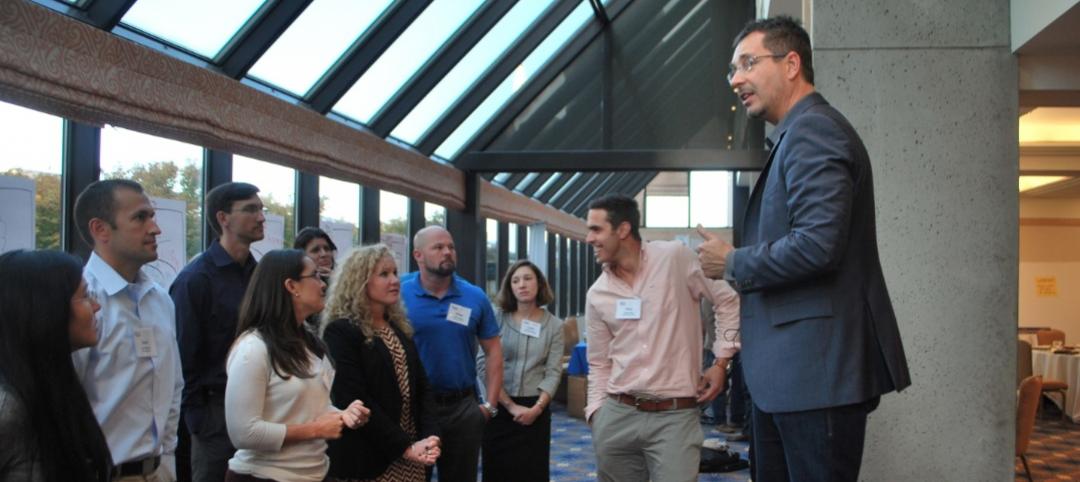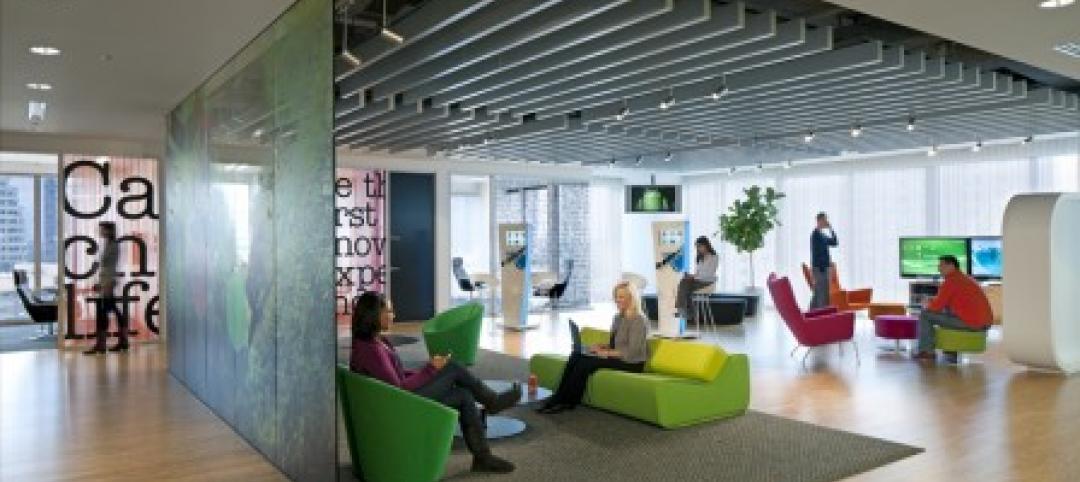On the 37th floor of the 51-story 1600 Smith building in Houston, four design firms have each developed spec office suites that are being positioned as showcases for next-generation work environments.
Brookfield Property Partners, the real estate developer, gave these firms—Gensler, Rottet Studio, Ziegler Cooper Architects, and Inventure Design—pretty much carte blanche to come up with their vision for the office of the future. When construction is completed next month, Brookfield intends to market these suites under the brand DesignHive by Brookfield Houston.
O’Donnell/Snider Construction is doing the renovation work on all four suites.
The design firms have enjoyed unusual freedom on this project, within a building that hadn’t been renovated since it opened in 1984. Other than a budget, “there were no real set parameters, and no client,” said Laura Nagala, Ziegler Cooper’s project designer for DesignHive Houston. Dean Strombom, AIA, LEED BD+C, a principal at Gensler, noted that DesignHive gives his firm “the opportunity to take a look at how are people going to work in the future, [and] what are the things that are important.”
Yishio Kuo, NCIDQ, LEED AP ID+C, Gensler’s design director on this project, said that the suite design acknowledges that “people work anywhere, anyplace, any time.”
In a written response to questions from BD+C, Brookfield stated that the overall goal of DesignHive is “innovation.” And in videotaped interviews, its design partners talked about “collaboration” and “creating exciting spaces” as abiding guidelines for their suites.
“We saw this as a great opportunity for the firms to bring a completely fresh vision to 1600 Smith,” says Paul Frazier, EVP and Head of Brookfield’s Houston Region. “The tower’s rich history will remain ever-present, but through new eyes, DesignHive will reimagine each space’s design potential, and attract tenants who may not have considered the iconic tower previously.”
Brookfield and its design partners in Houston are keeping the specifics about the design of each suite—whose sizes range from 2,815 sf to 4,193 sf —close to the vest until next month’s opening. Brookfield also hasn’t said yet whether it intends to expand the DesignHive brand into other markets, except to note that it hopes the brand “resonate[s] across all tenant categories, broadening the spectrum of potential tenants and accelerating leasing velocity.”

DesignHive is the brand under which Brookfield is promoting new office designs in Houston and Los Angeles. The developer hasn't said yet whether it will bring that brand to other metros. Image: Brookfield Property Partners.
Two years ago, Brookfield launched DesignHive when it conducted a competition involving six architecture firms—Wolcott, Unispace, Rottet Studio, Schlemmer Algaze Associates, Interior Architects, and Gensler—for which each designed a spec suite in one of two buildings in Los Angeles: the 52-story Gas Company Tower, and the Wells Fargo Center.
“What we are doing with DesignHive in downtown Los Angeles is demonstrating that high-rise buildings—with great architecture and design, amenities, common areas, infrastructure, connectivity, parking and access to public transit—can be the preferred option for many creative uses as well as for traditional service firms,” Bert Dezzutti, EVP of Brookfield’s western region, told Interior Design magazine at the time.
When the L.A. DesignHive opened in May 2015, the website L.A. Downtown reported the only parameters that Brookfield imposed on its six designers was a budget and the type of tenant. The six L.A. suites ranged from 3,792 sf to 4,535 sf.
•Gensler’s “law firm of the future” in the Wells Fargo Center has a concierge-style reception desk, and open and private workstations to spark collaboration.
•SAA’s 4,320-sf suite for a boutique trading and investment firm has a purple-and-gold color scheme that’s supposed to signify wealth and power, Italianate wall coverings, and a chandelier over a bar.
•Interior Architects’ suite, for the technology consulting sector, features lightweight furniture that can be moved around easily. There are practically no walls in this suite.
•Rottet’s design, for a fashion media tenant, includes custom wall art and Ikea furniture.
•Unispace’s 4,378-sf suite, for a cloud-based computing company, includes hanging ceiling raindrop sculptures and a mural of the earth’s atmosphere and clouds. The space opened with a break area with Nintendo Wii and a glass booth to make private phone calls.
•Wolcott designed its suite for a law firm, too, albeit one targeting younger clients. The space includes hangout areas with oversized pillows and two pod structures that look like teepees.
Related Stories
| Oct 30, 2013
15 stellar historic preservation, adaptive reuse, and renovation projects
The winners of the 2013 Reconstruction Awards showcase the best work of distinguished Building Teams, encompassing historic preservation, adaptive reuse, and renovations and additions.
| Oct 30, 2013
Why are companies forcing people back to the office?
For a while now companies have been advised that flexibility is a key component to a successful workplace strategy, with remote working being a big consideration. But some argue that we’ve moved the needle too far toward a “work anywhere” culture.
| Oct 30, 2013
11 hot BIM/VDC topics for 2013
If you like to geek out on building information modeling and virtual design and construction, you should enjoy this overview of the top BIM/VDC topics.
| Oct 28, 2013
Urban growth doesn’t have to destroy nature—it can work with it
Our collective desire to live in cities has never been stronger. According to the World Health Organization, 60% of the world’s population will live in a city by 2030. As urban populations swell, what people demand from their cities is evolving.
| Oct 23, 2013
Gehry, Foster join Battersea Power Station redevelopment
Norman Foster and Frank Gehry have been selected to design a retail section within the £8 billion redevelopment of Battersea Power Station in London.
| Oct 21, 2013
University of Queensland’s net-zero building features biomimicry-based design
University of Queensland’s Global Change Institute (GCI) building in Australia showcases on-site solar energy sources, biomimicry-based design features, and the first structural use of low-carbon concrete in the country.
| Oct 18, 2013
Meet the winners of BD+C's $5,000 Vision U40 Competition
Fifteen teams competed last week in the first annual Vision U40 Competition at BD+C's Under 40 Leadership Summit in San Francisco. Here are the five winning teams, including the $3,000 grand prize honorees.
| Oct 18, 2013
Researchers discover tension-fusing properties of metal
When a group of MIT researchers recently discovered that stress can cause metal alloy to fuse rather than break apart, they assumed it must be a mistake. It wasn't. The surprising finding could lead to self-healing materials that repair early damage before it has a chance to spread.
| Oct 18, 2013
Sustainability expert: Smart building technology can have quick payback
Smart building technology investments typically pay for themselves within one or two years by delivering energy savings and maintenance efficiencies.
| Oct 14, 2013
How to leverage workplaces to attract and retain top talent
Just about every conversation I have related to employee attraction and retention tends to turn into an HR sounding discussion about office protocols, incentives, and perks. But as a workplace strategist, I need to help my clients make more tangible links between their physical workplace and how it can be leveraged to attract and retain top talent. Here are some ideas.




